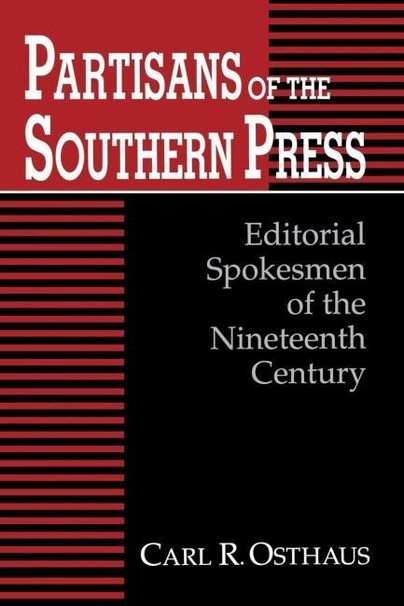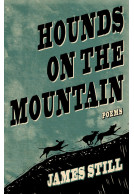Google Books previews are unavailable because you have chosen to turn off third party cookies for enhanced content. Visit our cookies page to review your cookie settings.
Partisans of the Southern Press (Paperback)
Editorial Spokesmen of the Nineteenth Century
Imprint: University Press of Kentucky
Pages: 288
ISBN: 9780813160115
Published: 15th July 2014
Script Academic & Professional
Pages: 288
ISBN: 9780813160115
Published: 15th July 2014
Script Academic & Professional
Please note this book may be printed for your order so despatch times may be slightly longer than usual.
You'll be £32.00 closer to your next £10.00 credit when you purchase Partisans of the Southern Press. What's this?
+£4.99 UK Delivery or free UK delivery if order is over £40
(click here for international delivery rates)
Order within the next 2 hours, 33 minutes to get your order processed the next working day!
Need a currency converter? Check XE.com for live rates
(click here for international delivery rates)
Order within the next 2 hours, 33 minutes to get your order processed the next working day!
Need a currency converter? Check XE.com for live rates
Carl R. Osthaus examines the southern contribution to American Press history, from Thomas Ritchie's mastery of sectional politics and the New Orleans Picayune's popular voice and use of local color, to the emergence of progressive New South editors Henry Watterson, Francis Dawson, and Henry Grady, who imitated, as far as possible, the New Journalism of the 1880s. Unlike black and reform editors who spoke for minorities and the poor, the South's mainstream editors of the nineteenth century advanced the interests of the elite and helped create the myth of southern unity.
The southern press diverged from national standards in the years of sectionalism, Civil War, and Reconstruction. Addicted to editorial diatribes rather than to news gathering, these southern editors of the middle period were violent, partisan, and vindictive. They exemplified and defended freedom of the press, but the South's press was free only because southern society was closed.
This work broadens our understanding of journalism of the South, while making a valuable contribution to southern history.
Other titles in University Press of Kentucky...















